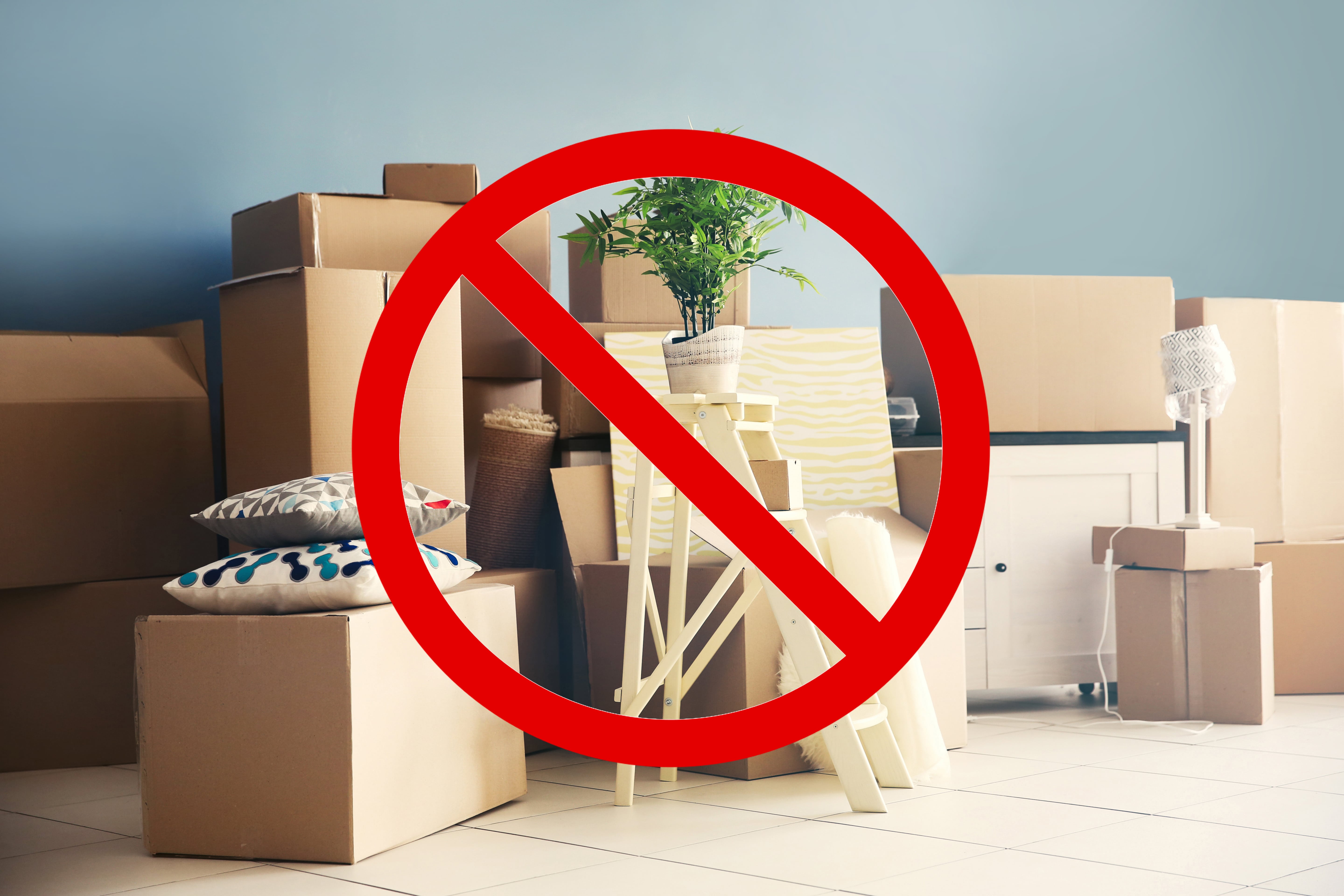Essentially, these fall into three categories:
1. Items we cannot move.
2. Items we will not move, except under special circumstances.
3. Items you should move yourself.
Use this guide to understand the differences in items, and what you should know about them. You'll be ready on moving day, with no unpleasant surprises.
Hazardous Materials
Because hazardous materials pose a threat to your household goods and to human safety, we cannot move them. So, before your possessions are packed and loaded, have a plan for giving away hazardous materials – or disposing of them safely.
Hazardous materials Global cannot transport:
- Flammable, corrosive, or explosive items
- Acids
- Aerosols
- Ammonia
- Ammunition
- Car Batteries
- Charcoal
- Charcoal Lighter Fluid
- Chemistry Sets
- Cleaning Solvents
- Darkroom Chemicals
- Fire Extinguisher
- Fireworks
- Gasoline
- Household Batteries
- Kerosene
- Lamp Oil
- Liquid Bleach
- Loaded Guns
- Matches
- Motor Oil
- Nail Polish
- Nail Polish Remover
- Paint Thinner
- Paints
- Pesticides
- Poisons
- Pool Chemicals
- Propane Tanks
- Gun Reloading Supplies
- Scuba Tanks
- Sterno®
- Weed Killer
Safe Disposal of Hazardous Materials
How can you safely get rid of your leftover products?
You may give them to a friend or neighbor who will use them. Or take the products to a collection point for hazardous waste in your community. Your local or state health department can tell you where it is. Some products, such as pesticides, are extremely hazardous. They will even require special care for disposing of the container. Read the label so you know what to do.
- Never dump hazardous products.
- Never burn hazardous wastes, not even in a barrel or stove. Burning may cause toxic gases and make hazardous ash and smoke.
- Recycle used motor oil and antifreeze. Many auto service centers and auto parts stores will accept used motor oil or antifreeze, or both.
- Mercury is a threat to health. Fluorescent light bulbs, thermometers, thermostats, and blood pressure meters all contain mercury. Call your local trash department or health department to find out where you can recycle these products.
Perishables
Global does not transport materials that may die or spoil during transit. These include: food items (fresh, frozen, refrigerated, or opened food products); and indoor or outdoor plants.
After you empty your refrigerators and freezers, keep the doors open at least 24 hours before they are loaded onto the truck. This will allow them to dry out, and it will help prevent the growth of mold.
Your Global relocation consultant may consider taking some perishable items under certain, very specific conditions. Ask about special arrangements for perishables if: you will properly pack them; they require no servicing in transit; they will travel fewer than 150 miles and be delivered within 24 hours of pickup.
Personal or Sentimental Items
Global can transport your personal or sentimental items, but it's best if you take them. This is especially true for anything that cannot be replaced. Should your shipment encounter unforeseen problems, you won't have to worry.
Consider keeping these important things with you:
- Address Books
- Airline Tickets
- Car Keys
- Car Titles
- Cash
- Cell Phones
- Certificates of Deposit
- Checkbooks
- Financial Documents
- Insurance Policies
- IRAs/Deeds/Tax Records
- Jewelry, watches, furs
- Keys to furniture, safe, home
- Laptop Computers
- Medical & Dental Records
- Medicine
- Photographs, Photo Albums, Home Video
- Professional Files (attorney, accountant, physician)
- Research Projects
- School Records
- Sterling Silver, Gold
- Stocks/Bonds
All irreplaceable items and those with sentimental value should be carried with you. If there are things that could never be replaced, make sure to carry those items with you as well. While we very rarely have problems during moves, items that could never be replaced should be protected by you personally to ensure that accidental issues would not affect you.
Every day, Global Moving Systems helps people go new places. We want your move to be a success. If you have any questions about what we can and cannot move, please talk to your Global relocation consultant.


